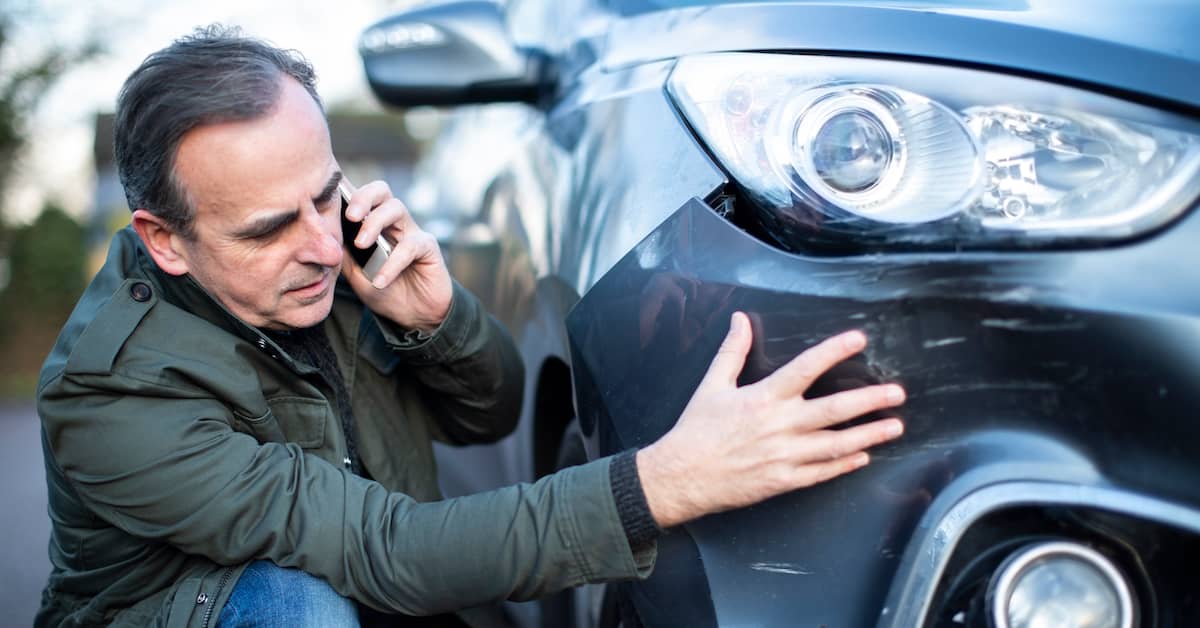
A car accident claim has a number of moving parts. Multiple steps in the process will involve one or more insurance companies.
The last thing anyone wants to do after a car accident is call their insurance company. However, reporting the accident promptly is essential for protecting your rights.
Colombo Law can help with all aspects of your car accident claim, including interactions with insurers. Please call (304) 599-4229 today for a FREE consultation at our office in Morgantown, West Virginia.
Do I Have to Report a Car Accident to My Insurance?
The short answer is “Yes.” Notifying the insurer that you have been in an accident is not a requirement under the law, but rather a requirement under your insurance policy.
Auto insurers require their policyholders to report all accidents. Being involved in an accident can impact the value of an insured vehicle, as well as the driver’s insurance premium.
Though you might not look forward to calling your insurance company, reporting the accident is actually in your best interest for the following reasons:
- Contacting your insurance company puts you on the road to financial recovery. In the vast majority of cases, recovering financial compensation for a car accident means dealing with insurance companies. Even if the other driver was at fault, you will still start the process by contacting your insurer. Additionally, if the at-fault driver is uninsured or underinsured, then you will need to seek coverage under your uninsured/underinsured motorist (UM/UIM) policy.
- Reporting your car accident protects your legal rights. If you fail to report an accident, your insurance company could use this as an excuse to try to deny coverage for a future claim. It could also lead to cancellation of your policy. Even if you don’t want to deal with your insurance company now, this is the best option for protecting yourself long-term.
How Long Do I Have to Report an Accident to My Insurance Company?
Different insurance companies set different deadlines for reporting car accidents. You should check your insurance policy to see how long you have after an accident to report it.
Generally, it is best to notify your insurer as soon as possible. The same goes for filing a car accident claim.
Any delays in filing will delay your financial recovery. If you wait too long, your insurance company and/or the at-fault driver’s insurance company may even deny your claim.
Do I Need a Police Report for a Car Insurance Claim?
Any time you are involved in a car accident, it is important to call the police from the scene. When the police respond to the accident, they should investigate and prepare a police report.
Read More: Collecting Police Reports After an Accident in West Virginia
But what if the authorities don’t respond to the scene of the accident, or you were unable to call 911 due to the seriousness of your injuries? Although insurers don’t technically require a police report, having a copy can help support your car accident claim. Therefore, you should report the accident to the police promptly and make sure you have a copy on hand.
5 Tips for Dealing with Your Car Insurance Company After an Accident
When you call your insurance company to report a car accident, you need to be very careful to avoid costly mistakes. Do not provide an insurance company a recorded statement until you have consulted with an attorney. If you say the wrong thing or make any representations that aren’t true – even if you don’t realize it – the insurance company may use it against you.
Read More: How to Respond to a West Virginia Car Crash and Protect Your Legal Interests
With this in mind, here are five tips for dealing with your car insurance company after an accident:
1. Stick to the Basics
When reporting a car accident to your insurance company, it is best to stick to the basic details. During the initial call, you do not have to provide any information beyond where and when the accident happened and who was involved.
2. Seek Advice from an Attorney
If you have been involved in a car accident and you haven’t yet called the insurance company, you should seek advice from an attorney before contacting your insurer. Your attorney can walk you through everything you need to know, as well as tell you what you should and shouldn’t say to the adjuster.
3. Do Not Admit Fault
When you call to report the accident, the insurance adjuster may ask open-ended questions about how the accident happened. You need to be careful not to say anything that could be construed as an admission of fault. Even if you think you may be responsible for the accident, you won’t know for sure until your attorney conducts an investigation.
Read More: What to Do If a Car Accident Was Not Your Fault
4. Do Not Make Assumptions
Just as you should not admit fault, you should not make any assumptions about the cause of the accident, the severity of your injuries, etc. You don’t want to say anything that turns out not to be true. Again, stick to the basic facts, and do not let the adjuster talk you into saying something that could jeopardize your claim.
5. Feel Free to Say “I Don’t Know”
If you don’t know the answer to the insurer’s questions, don’t hazard a guess. The insurance company can’t use an “I don’t know” against you.
The circumstances involved in car accidents can be extremely complicated. You won’t know exactly what happened or who was at fault until your attorney examines all of the facts and circumstances involved.
Get Started on Your Car Accident Claim
Insurance companies control all cases involving car accidents. Colombo Law can help even the playing field and provide you with knowledgeable support and guidance.
Reporting the accident to insurance is just the first step of your claim. Our car accident attorneys can help you every step of the way, protecting your rights and seeking maximum compensation for your injuries and damages.










